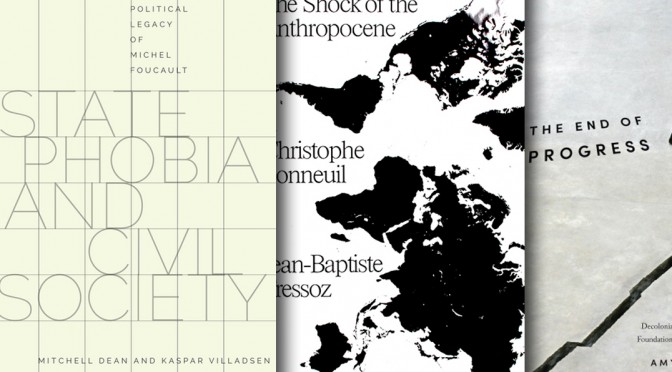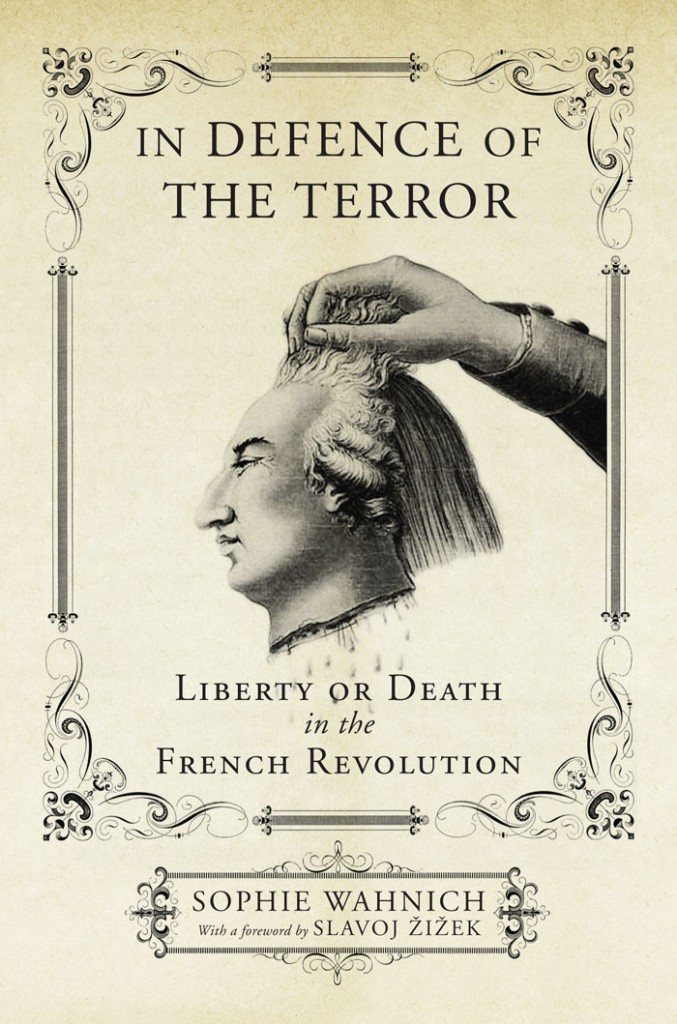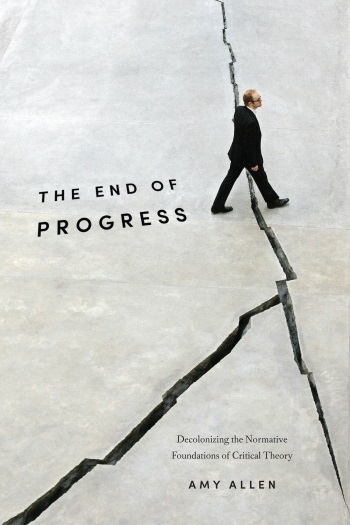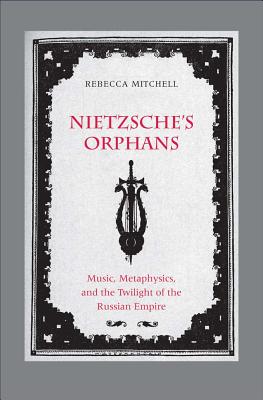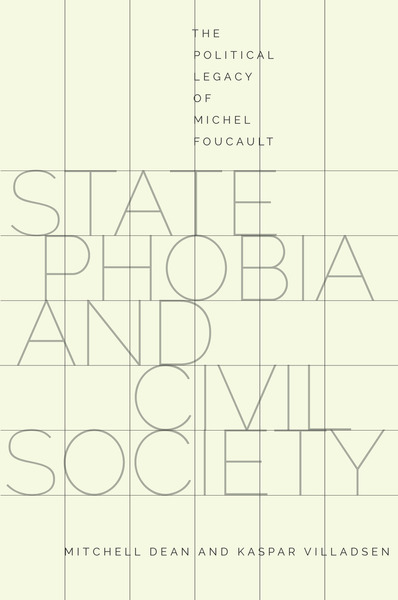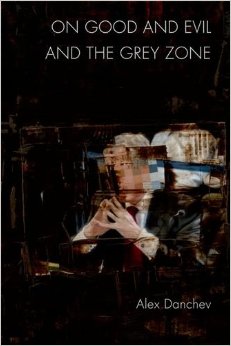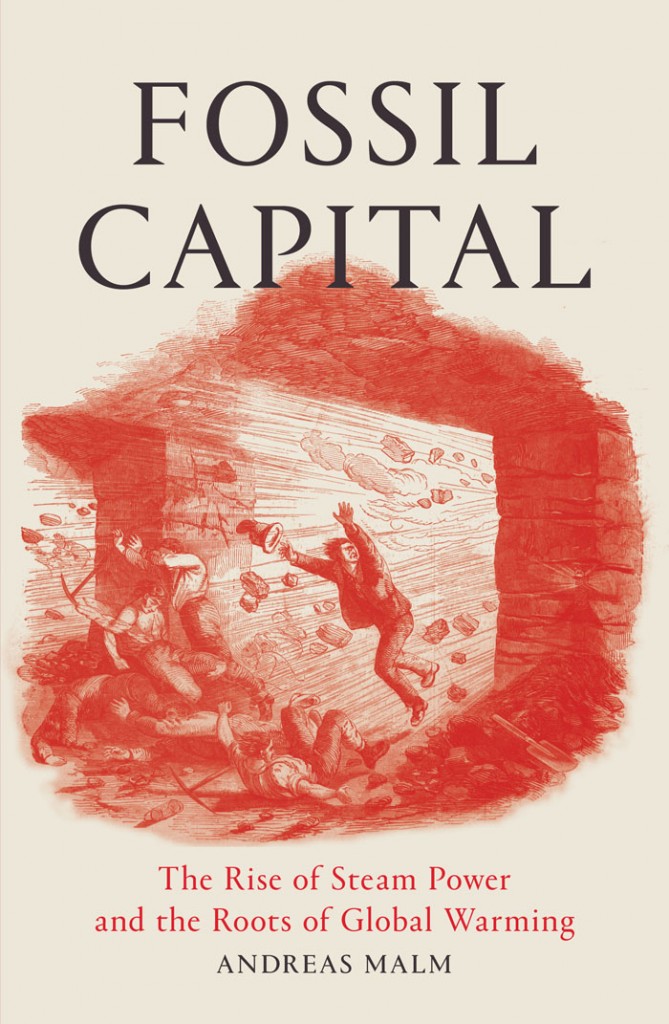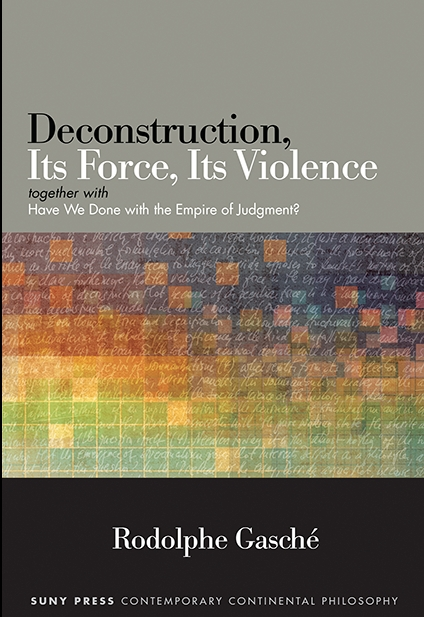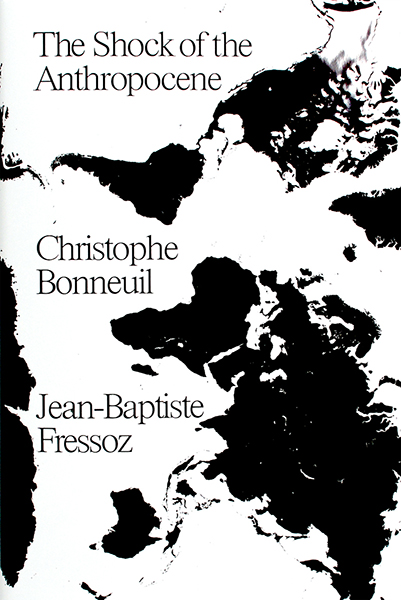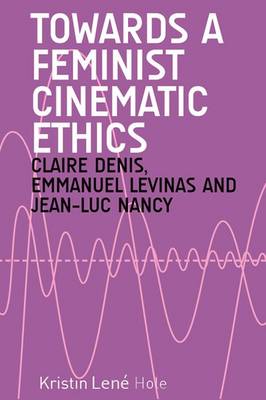If you’re an author or a publisher with a forthcoming book, send us a line at tips@critical-theory.com.
If you’ve read any of the books below, let us know how they were in the comments.
In Defense of the Terror
By Sophie Wahnich
For two hundred years after the French Revolution, the Republican tradition celebrated the execution of princes and aristocrats, defending the Terror that the Revolution inflicted upon on its enemies. But recent decades have brought a marked change in sensibility. The Revolution is no longer judged in terms of historical necessity but rather by “timeless” standards of morality. In this succinct essay, Sophie Wahnich explains how, contrary to prevailing interpretations, the institution of Terror sought to put a brake on legitimate popular violence—in Danton’s words, to “be terrible so as to spare the people the need to be so”—and was subsequently subsumed in a logic of war. The Terror was “a process welded to a regime of popular sovereignty, the only alternatives being to defeat tyranny or die for liberty.”
Buy it here.
The End of Progress
By Amy Allen
While post- and decolonial theorists have thoroughly debunked the idea of historical progress as a Eurocentric, imperialist, and neocolonialist fallacy, many of the most prominent contemporary thinkers associated with the Frankfurt School—Jürgen Habermas, Axel Honneth, and Rainer Forst—have defended ideas of progress, development, and modernity and have even made such ideas central to their normative claims. Can the Frankfurt School’s goal of radical social change survive this critique? And what would a decolonized critical theory look like?
Amy Allen fractures critical theory from within by dispensing with its progressive reading of history while retaining its notion of progress as a political imperative, so eloquently defended by Adorno. Critical theory, according to Allen, is the best resource we have for achieving emancipatory social goals. In reimagining a decolonized critical theory after the end of progress, she rescues it from oblivion and gives it a future.
Buy it here.
Nietzsche’s Orphan
By Rebecca Mitchell
A prevailing belief among Russia’s cultural elite in the early twentieth century was that the music of composers such as Sergei Rachmaninoff, Aleksandr Scriabin, and Nikolai Medtner could forge a shared identity for the Russian people across social and economic divides. In this illuminating study of competing artistic and ideological visions at the close of Russia’s “Silver Age,” author Rebecca Mitchell interweaves cultural history, music, and philosophy to explore how “Nietzsche’s orphans” strove to find in music a means to overcome the disunity of modern life in the final tumultuous years before World War I and the Communist Revolution.
Buy it here.
State Phobia and Civil Society
By Mitchell Dean and Kaspar Villadsen
State Phobia draws extensively upon the work of Michel Foucault to argue for the necessity of the concept of the state in political and social analysis. In so doing, it takes on not only the dominant view in the human sciences that the concept of the state is outmoded, but also the large interpretative literature on Foucault, which claims that he displaces the state for a de-centered analytics of power. Understanding Foucault means understanding all his interlocutors—whether Marxists, Maoists, neoliberals, or social democrats. It requires turning to Foucault’s colleagues, including Deleuze and Guattari, François Ewald, and Blandine Kreigel, in relation to whom he carved out a position. And it entails an examination of his legacy in Hardt and Negri, the theorists of Empire, or in Nikolas Rose, the influential English sociologist. Foucault’s own view is highly ambiguous: he claims to be concerned with the exercise of political sovereignty, yet his work cannot make visible the concept of the state. Moving beyond Foucault, the authors outline new ways of conceiving the state’s role in establishing social order and in mediating between an inequality-producing capitalist economy and the juridical equality and political rights of individuals. Arguing that states and their cooperation remain of vital importance to resolving contemporary crises, they demonstrate the interdependence of state and civil society and the necessity of social forms of governance.
Buy it here.
On Good and Evil and the Grey Zone
By Alex Danchev
How can works of the imagination help us to understand good and evil in the modern world? In this new collection of essays, Alex Danchev treats the artist as a crucial moral witness of our troubled times, and puts art to work in the service of political and ethical inquiry. He takes inspiration from Seamus Heaney’s dictum: ‘the imaginative transformation of human life is the means by which we can most truly grasp and comprehend it’. This is a book of blasphemers, world menders, troublemakers, torturers and turbulent priests of every persuasion.
Buy it here.
Fossil Capital
By Andreas Malm
In this masterful new history, Andreas Malm claims it all began in Britain with the rise of steam power. But why did manufacturers turn from traditional sources of power, notably water mills, to an engine fired by coal? Contrary to established views, steam offered neither cheaper nor more abundant energy—but rather superior control of subordinate labour. Animated by fossil fuels, capital could concentrate production at the most profitable sites and during the most convenient hours, as it continues to do today. Sweeping from nineteenth-century Manchester to the emissions explosion in China, from the original triumph of coal to the stalled shift to renewables, this study hones in on the burning heart of capital and demonstrates, in unprecedented depth, that turning down the heat will mean a radical overthrow of the current economic order.
Buy it here
Deconstruction, Its Force, Its Violence
By Rodolphe Gasche
In this book, Rodolphe Gasché returns to some of the founding texts of deconstruction to propose a new and broader way of understanding it—not as an operation or method to reach an elusive outside, or beyond, of metaphysics, but as something that takes place within it. Rather than unraveling metaphysics, deconstruction loosens its binary and hierarchical conceptual structure. To make this case, Gasché focuses on the concepts of force and violence in the work of Jacques Derrida, looking to his essays “Force and Signification” and “Force of Law,” and his reading on Of Grammatology in Claude Lévi-Strauss’s autobiographical Tristes Tropiques. The concept of force has not drawn extensive scrutiny in Derrida scholarship, but it is crucial to understanding how, by way of spacing and temporizing, philosophical opposition is reinscribed into a differential economy of forces. Gasché concludes with an essay addressing the question of deconstruction and judgment and considers whether deconstruction suspends the possibility of judgment, or whether it is, on the contrary, a hyperbolic demand for judgment.
Buy it here.
Shock of Anthropocene
By Christophe Bonneuil and Jean-Baptiste Fressoz
The Earth has entered a new epoch: the Anthropocene. What we are facing is not only an environmental crisis, but a geological revolution of human origin. In two centuries, our planet has tipped into a state unknown for millions of years.
How did we get to this point? Refuting the convenient view of a “human species” that upset the Earth system, unaware of what it was doing, this book proposes the first critical history of the Anthropocene, shaking up many accepted ideas: about our supposedly recent “environmental awareness,” about previous challenges to industrialism, about the manufacture of ignorance and consumerism, about so-called energy transitions, as well as about the role of the military in environmental destruction. In a dialogue between science and history, The Shock of the Anthropocene dissects a new theoretical buzzword and explores paths for living and acting politically in this rapidly developing geological epoch.
Buy it here.
Towards a Feminist Cinematic Ethics: Claire Denis, Emmanuel Levinas and Jean-Luc Nancy
By Kristin Lene
Towards a Feminist Cinematic Ethics develops an account of non-normative ethics that can be used to think about filmmaking and viewing, using two philosophers—Emmanuel Levinas and Jean-Luc Nancy, and the work of filmmaker Claire Denis. In an accessible and engaging manner, it offers new readings of Denis’ films, situating them within larger feminist, postcolonial and queer debates about identity and difference. Using a generative methodology, the book works towards a mutually challenging and productive relationship between cinematic ideas and philosophical concepts.
Buy it here.
Traces of History
By Patrick Wolfe
Traces of History presents a new approach to race and to comparative colonial studies. Bringing a historical perspective to bear on the regimes of race that colonizers have sought to impose on Aboriginal people in Australia, on Blacks and Native Americans in the United States, on Ashkenazi Jews in Western Europe, on Arab Jews in Israel/Palestine, and on people of African descent in Brazil, this book shows how race marks and reproduces the different relationships of inequality into which Europeans have coopted subaltern populations: territorial dispossession, enslavement, confinement, assimilation, and removal.
Charting the different modes of domination that engender specific regimes of race and the strategies of anti-colonial resistance they entail, the book powerfully argues for cross-racial solidarities that respect these historical differences.
Buy it here.

